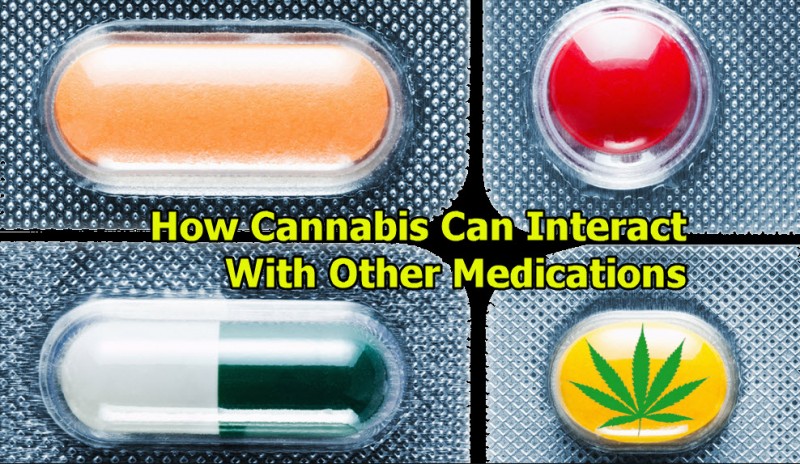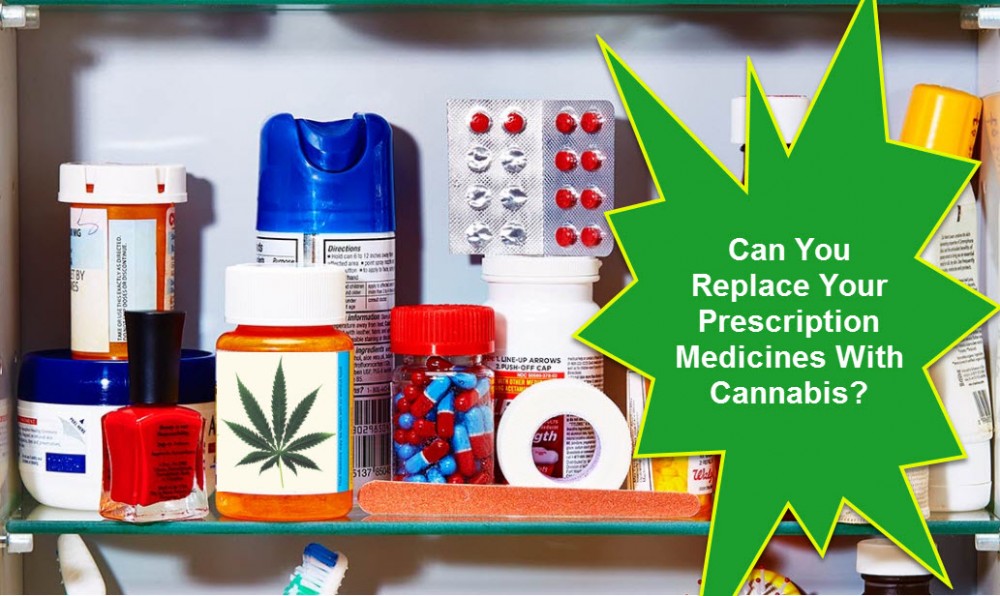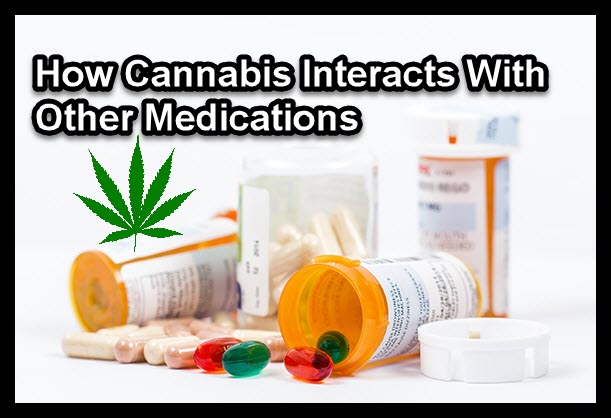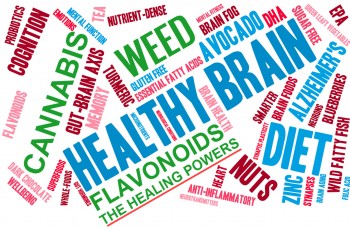How Cannabis can interact with other medications (and why it matters)
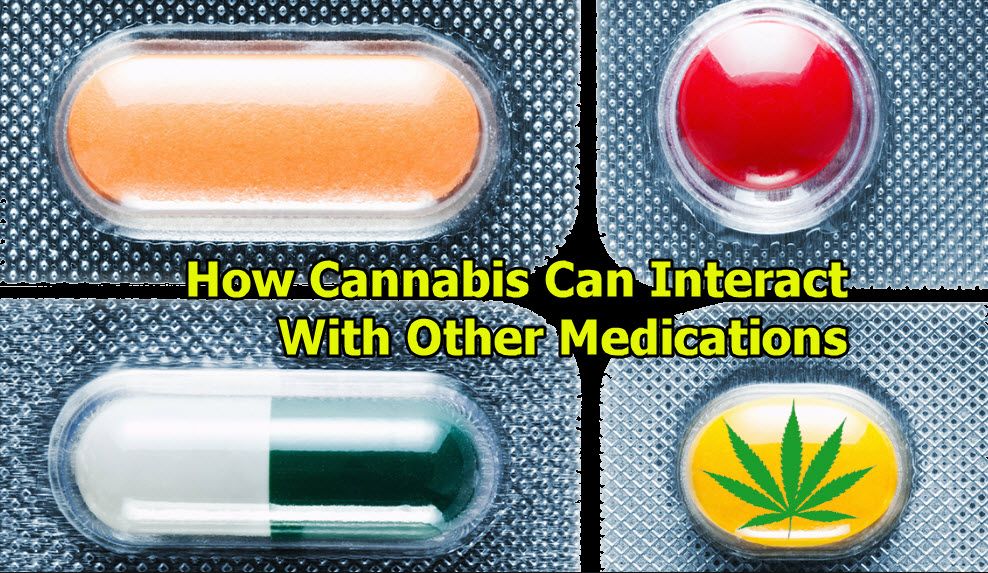
Cannabis has been used as a medicinal remedy for thousands of years. Only over the past 80 years or so, has the plant been illegal virtually all around the world. During the past two decades however, the popularity of cannabis as medicine grew once more. Now, we’re on the verge of re-legalization and with a host of new medications on the market, it’s important to understand whether or not marijuana interacts with these medicines.
For the most part, cannabis won’t interact with your medication. However, there are some instances where they could. In this article we’ll be explaining the why, and how to continue using medical marijuana to treat your medical condition.
How does Marijuana Interact with other Medication?
To understand how cannabis may interact with medicines, we need to understand how doctors determine doses for those medication. This all has to do with the CYP450 Pathway. The cytochrome P450 system is responsible for metabolizing potentially toxic compounds.
Doctors determine doses based on how fast your body has the ability to eliminate these toxins, so it doesn’t build up in your system. In a healthy body, this system corresponds with the “average recommended doses” on your medication.
However, certain foods and medicines might interact with this system, either speeding up the metabolization or slowing it down. For instance, Grapefruit is one of the foods that aren’t recommended to consume for certain medications.
This is because it can slow down the CYP450 process, building up toxins in your liver which could ultimately lead to an overdose of the particular drug you’re taking.
Compounds such as CBD also interact with the CYP450 system, meaning that some medication could be processed differently.
Let’s take a look at medication that utilizes the CYP450 system.
Medicines that use with the CYP450 system
From the Indiana University Department of Medicine, drugs that use the CYP450 system are as follows:
-
Steroids
-
HMG CoA reductase inhibitors
-
Calcium channel blockers
-
Antihistamines
-
Prokinetics
-
HIV antivirals
-
Immune modulators
-
Benzodiazepines
-
Antiarrythmics
-
Antibiotics
-
Anesthetics
-
Antipsychotics
-
Antidepressants
-
Anti-epileptics
-
Beta blockers
-
PPIs
-
NSAIDs
-
Angiotension II blockers
-
Oral hypoglycemic agents
-
Sulfonylureas
As you can see, the list is quite extensive and according to the university, roughly 60% of your medicine is dependent on the CYP450 system. Additionally, many of the symptoms that the medicines on the list treat, are also treatable with cannabis. And this is where people need to be careful.
What to do if you’re taking other meds?
While cannabis might provide relief to many of the symptoms on the list, the fact of the matter is that you have to be careful when taking cannabis oil in conjunction with your meds. At least, you shouldn’t do it unsupervised.
If your medication made it on the list, then you should consider talking to your doctor about incorporating cannabis into your regimen of medicine. However, it is important to do a blood panel prior to starting with cannabis. This to have a baseline to work from when you start incorporating marijuana.
After about a week or two, you should then do another blood screen simply to see if the active compounds in cannabis actually had an effect on it or not. As mentioned, in most cases you’d be fine, however, it’s always best to be cautious when you’re talking about your health.
What if Cannabis does interact with my medicine?
If it turns out that cannabis does interfere with your medication, then you’re at a cross roads. On one hand, if cannabis slows down the metabolizing process of your medication, then reducing your dose (of your medication) could be warranted. If cannabis can supplant the need for the medicine, then getting rid of the medication all together could also be an option.
If cannabis speeds up the metabolizing process of your medication, then you can either increase the doses of the original medicine, or see if you can supplant the medication completely with cannabis.
All of this, should be FIRST DISCUSSED WITH YOUR DOCTOR. By no means do I know about your health, or your conditions or medical strategy. All I’m pointing out in this article is that cannabis does have the potential to interact with your drugs and it’s important that you are aware of this fact.
As mentioned, for most medicines, there doesn’t seem to be a problem taking CBD, THC oil or any other cannabinoid with your medication. However, for some it might.
Be smart. It’s your body, your health. Be responsible for your own actions and focus on making a conscious effort to ensure that you are getting the best care for your condition as possible.
For me, someone who has been researching cannabis for nearly twenty years, found this to be something that is crucial to share with other people. If you know someone who might need this information, don’t hesitate to tag them or share this article to them. You could be sparing someone from a world of hurt.
OTHER STORIES YOU MAY ENJOY...
CAN YOU TAKE MARIJUANA INSTEAD OF YOU PRSCRIPTION DRUGS, CLICK HERE.
OR..
HOW CANNABIS EFFECTS YOUR OTHER MEDICATIONS, CLICK HERE.
